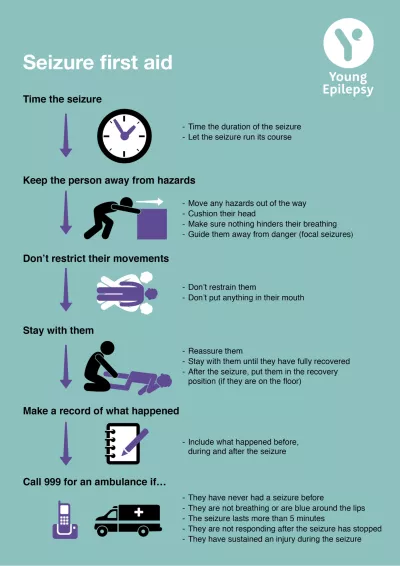This page covers seizure first aid, which should be outlined in each young person’s Individual Healthcare Plan. It also includes a seizure first aid visual aid, which you can download as a PDF.
Individual Healthcare Plans and seizure first aid
Every young person with epilepsy in school should have an Individual Healthcare Plan (IHP),which should include:
- Clear instructions on what to do if they have a seizure
- Emergency medication protocol, including instructions for when you should call an ambulance.
- Contact details of parents and or their epilepsy nurse.
All staff should be epilepsy aware and, where appropriate, trained in exactly what to do if a young person has a seizure. You’ll need to consider the young person's dignity. For example, they may be incontinent during a seizure. You won’t need to treat most seizures or call an ambulance, because most are not a medical emergency and stop by themselves without the need for treatment. You may just need to get the young person to a quiet area and let them rest before they re-join activities. Find out about accurately recording details of a seizure here for future reference.
Basic principles of first aid
Always refer to each young person’s IHP and emergency protocol to know what to do. However, this visual aid shows clearly the basic principles of seizure first aid:

Download the ‘Seizure first aid’ visual aid here
As stated, seizures are not normally a medical emergency and most stop by themselves. However, sometimes a medical emergency known as status epilepticus can occur, which does require emergency medication. Find out about status epilepticus and emergency medication in schools here.


